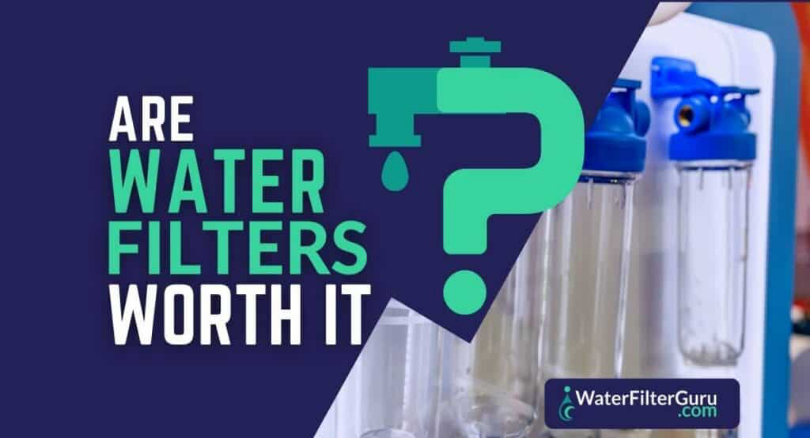In recent decades, the water filtration industry has experienced remarkable growth, emerging as one of the most crucial sectors in the global market. Driven by increasing concerns about water scarcity, contamination, urbanization, and health awareness, this industry has evolved from simple filtration systems to advanced technologies capable of providing clean, safe, and sustainable water solutions. The development of the water filtration industry reflects not only technological innovation but also the growing recognition of water as a fundamental human right.

1. A Growing Global Demand
The global demand for clean water continues to rise at an unprecedented pace. According to the United Nations, over two billion people currently live in countries experiencing high water stress, and by 2025, half of the world's population could be living in water-stressed areas. This urgent need has propelled the water filtration industry into the spotlight. Whether it is for domestic, municipal, agricultural, or industrial use, filtered water is essential for daily life, hygiene, and economic development.
Emerging economies, particularly in Asia, Africa, and Latin America, are witnessing rapid urbanization, leading to significant investments in water infrastructure. In parallel, developed countries are modernizing outdated systems and upgrading technologies to comply with stricter environmental and health regulations. This convergence of global needs creates a fertile ground for innovation and expansion in the water filtration sector.
2. Technological Advancements in Water Filtration
The industry has undergone a remarkable transformation in terms of technology. In the past, water filtration mainly involved basic mechanical or carbon filters. Today, cutting-edge methods such as reverse osmosis (RO), ultraviolet (UV) disinfection, nanofiltration, ion exchange, and ultrafiltration are being widely used.
Reverse osmosis, for example, has become a standard in both household and industrial applications. It removes a broad range of contaminants, including heavy metals, bacteria, and dissolved salts. UV filtration, on the other hand, uses light to destroy pathogens without adding chemicals, offering a sustainable and environmentally friendly alternative.
Additionally, the advent of smart water purifiers equipped with IoT (Internet of Things) capabilities allows users to monitor water quality, filter life, and maintenance needs through mobile applications. These innovations make water filtration more efficient, accessible, and user-friendly than ever before.
3. Industrial and Municipal Applications
Beyond domestic use, the industrial application of water filtration systems has been a major driver of the sector’s growth. Industries such as pharmaceuticals, food and beverage, electronics, textiles, and petrochemicals require highly purified water for their operations. Contaminants can compromise product quality, reduce equipment life, and pose safety risks.
Municipalities also play a significant role. In many urban areas, public water supplies are either overburdened or contaminated. Investing in centralized filtration plants, desalination facilities, and wastewater treatment systems has become a priority. Governments are increasingly partnering with private firms to implement large-scale water filtration infrastructure projects, further propelling industry development.
4. Sustainability and Environmental Impact
With climate change and water pollution becoming more urgent, sustainability is now at the core of water filtration innovations. Manufacturers are focusing on reducing energy consumption, minimizing waste, and designing long-lasting, recyclable filters. Many systems now incorporate features like zero-water-waste designs or energy recovery devices, aligning the industry with global environmental goals.
Moreover, water filtration directly contributes to achieving the United Nations Sustainable Development Goals (SDGs), particularly Goal 6: "Clean Water and Sanitation for All." By enabling safe water access, the industry plays a vital role in improving health outcomes, reducing poverty, and supporting economic resilience.
5. Challenges Facing the Industry
Despite its growth, the water filtration industry faces several challenges. The initial cost of advanced filtration systems can be a barrier, particularly in low-income regions. Education and public awareness are also lacking in many parts of the world, leading to low adoption rates despite the evident benefits.
Furthermore, regulatory discrepancies across countries can create difficulties for international manufacturers. Standards for water quality, filter certification, and performance testing often vary, complicating cross-border trade and compliance.
There is also the issue of counterfeit or substandard filters entering the market, which can undermine consumer trust and cause potential health hazards.
6. The Role of Policy and Public-Private Partnerships
Government policy and collaboration with the private sector are key to overcoming these challenges. Incentives such as tax benefits, subsidies, and grants can encourage investment in water filtration systems. At the same time, public-private partnerships (PPPs) can accelerate infrastructure development and extend clean water access to underserved communities.
Non-governmental organizations (NGOs) and international institutions such as the World Bank, WHO, and UNICEF are also contributing by funding water projects, providing technical assistance, and promoting best practices worldwide.
7. Future Outlook
The future of the water filtration industry looks promising. According to market research firms, the global water filtration market is projected to exceed USD 50 billion by 2030, growing at a CAGR of around 7–9%. This growth will be driven not only by rising demand but also by continued innovation in membrane technology, artificial intelligence, and data-driven water quality monitoring.
The integration of renewable energy into water filtration systems — such as solar-powered RO units — is also an exciting trend. These solutions can bring clean water to remote or off-grid communities without relying on fossil fuels.
Moreover, consumer expectations are shifting toward smarter, more sustainable, and aesthetically pleasing filtration systems, pushing companies to prioritize design and user experience.
Conclusion
The water filtration industry is more than just a business sector — it is a cornerstone of global health, sustainability, and economic progress. As clean water becomes an increasingly precious resource, the role of this industry will only grow in significance. Through innovation, collaboration, and strategic investment, the water filtration industry is poised to meet the challenges of the 21st century and ensure safe, clean water for generations to come.
--------------------------------------------------------------------------------------------------------------
SANAKY VIETNAM., CO LTD - Manufacturer of Chest Freezer - Upright Cooler, Transformer, RO Water Purifier...
Website: www.sanaky-vn.com
 Vietnamese
Vietnamese  English
English  Chinese
Chinese  French
French  Spanish
Spanish  Russian
Russian  Arabic
Arabic  Portuguese
Portuguese